10 Bad Money Habits That Will Keep You Broke
10 Bad Financial Habits That Could Be Holding You Back
Depending on how you were raised and how you’ve learned to treat money, you may have picked up some bad money habits over the years. That’s completely normal, but if you don’t recognize those habits and actively try to correct them, it could have a massive effect on your financial well-being in the future.
Luckily, the hardest part of correcting a bad habit is realizing that it even exists. A lot of the time we don’t even notice the subtle habits that are holding us back financially.
That’s why in this post, we’ll be going over ten common habits that could be having a huge effect on your wallet. And, at the end of the post, I’ll also give you some tips on how to correct any bad financial habits that you may be dealing with.
1. Spending More Than You Earn
Of all the bad money habits on this list, this one is by far the worst. You can never save a cent if you’re spending more than you earn. That’s obvious though, right?
The problem is, a lot of people may not even realize that they’re spending more than they earn. For example, they may have some good months where they save money and some bad months where they spend obscene amounts. Those bad months can cause HUGE setbacks.
If you continue to spend more than you earn, you’ll slowly rack up more and more debt, which means more interest payments and a cycle of dread. You definitely don’t want that.
In the upcoming tips, you’ll learn about some habits that may be causing your overspending so you can quickly fix them.

2. Using Your Credit Cards Wrong
Following up from the last point, this is a big one that causes a lot of overspending. Too many people treat their credit cards like free money or “future” money when they should be treating them like debit cards.
I always like to say, if you can’t buy it with cash, don’t put it on a credit card. If you CAN buy it with cash, you’ll always have enough to pay off your credit card in full every month, which means no debt and no interest.
P.S. I still think credit cards are a great tool if used responsibly. Check out our post on the best rewards credit cards to find one that’s right for you.

3. Trying to Keep Up With Social Standards
With everyone flaunting their material possessions and fancy vacations on social media these days, it can seem like if you don’t have the latest and greatest new thing, you’re somehow less than others. That’s far from the truth!
Trying to keep up with celebrities and even friends is a habit that can cause you a lot of problems financially.
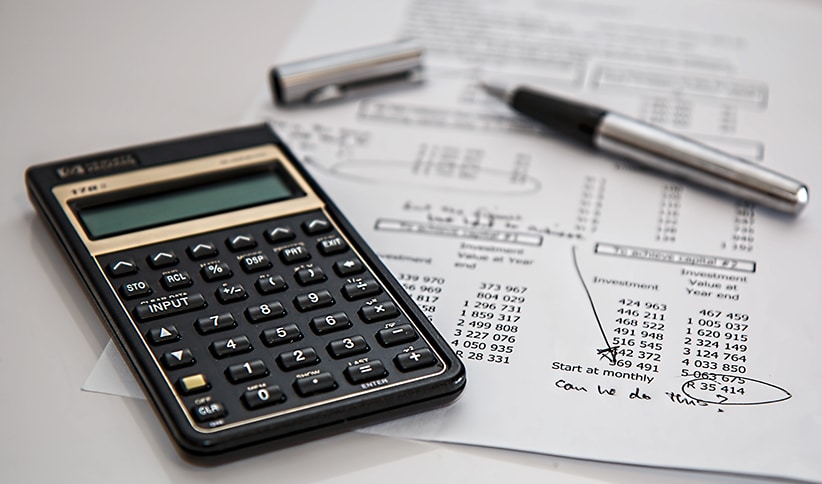
4. Paying Yourself Last
If you’re in the habit of waiting until the end of the month to see how much money you have left, you’re probably not saving as much as you could be. Each time you get paid you should be immediately taking money off your paycheck and saving it.
One of the best ways to figure out how much to take off is by creating a budget. There are many different ways to budget so figure out what works for you! Budgeting consistently is a great habit to get into.

5. Making Impulse Purchases
Impulse purchases are purchases that you make during a split-second decision. For whatever reason, you see something and you think, “I need that right now.”
This is obviously a pretty dangerous habit to have as a lot of impulse purchases only give temporary satisfaction. So, to curb this problem, I recommend waiting for 24-hours BEFORE making a purchase so you can really think it over and decide whether it’s something you actually need or not.
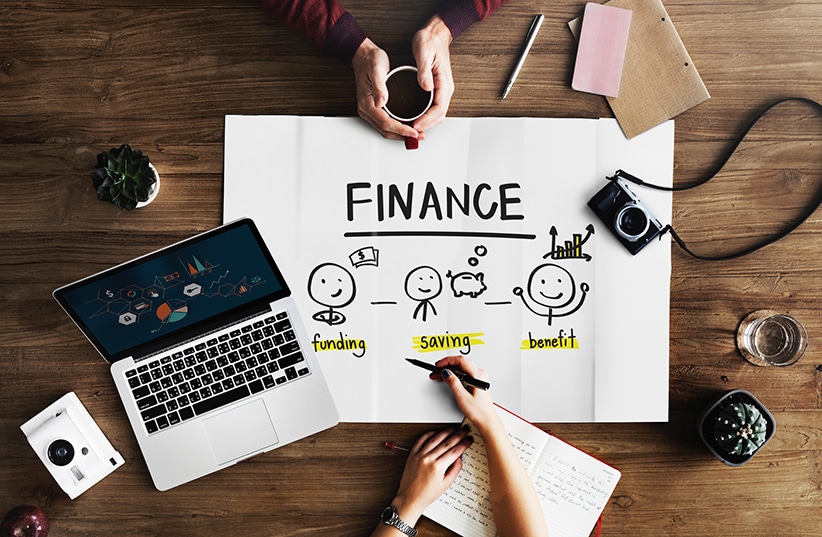
6. Winging It
If you don’t have any financial goals at the moment, you’re basically winging it. Sure, it could work out and you could end up with great finances, but most likely, ten or twenty years from now you’ll be in a similar position to where you are now.
If you want to really excel with your finances, you need to set realistic and solid goals to strive for. For example, if you want to buy a house in ten years, create a savings goal for a downpayment and contribute money to it every month. That would be an example of a long term goal.
Along with long-term goals, you should also set some short term goals too in order to reward yourself and keep yourself motivated. For example, you could create another savings goal to save $2,000 in 6 months for a nice vacation. P.S. Check out our vacation deals!
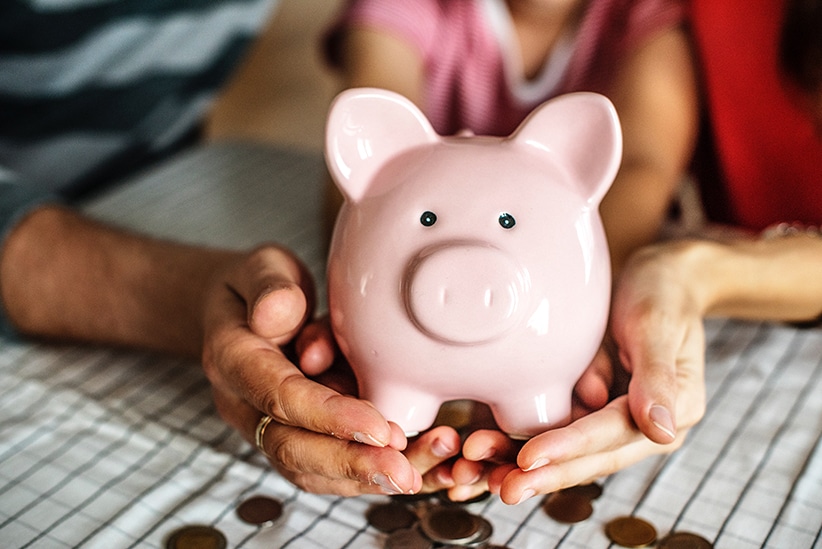
7. Only Putting Money in a Savings Account
Or worse, under your mattress. If you’re saving money, that’s great! However, if you’re storing it all in a savings account, you’re actually slowly losing money due to inflation.
What you should be doing is keeping some of that money in a high-interest savings account while putting the rest in investments. By investing your money you can earn a much greater return and in ten or twenty years you could have a small fortune.
Here’s the key though: Make sure to keep your investing consistent and if you can, make it automatic. Get set up with you companies 401k if that’s an option and look into robo-advisors for super simple hands-off investing.

8. Passing Up Free Money
Speaking of investing, if your company offers a 401k match you need to start taking advantage of it immediately! If you don’t, you’ll literally be missing out on free money.
Here’s how: Let’s say (for easy math) your salary is $100,000 and your company offers 100% matching on 5% of your salary. That means if you contribute $5,000 to your 401k in a year, your employer will also contribute $5,000. That’s free money.
To learn more about your companies 401k plan, talk to an HR representative.

9. Not Monitoring Spending
If you’re someone who has trouble with overspending, you should definitely be keeping track of each purchase that goes through your accounts. Even if you don’t overspend, this is still a good habit to get into.
To do this, you can either download an app like Mint or Personal Capital, or you can write down your purchases manually. I know someone who writes their purchases on a whiteboard and it forces them to really think about every purchase they make.
Once you start tracking your spending consistently, you’ll quickly notice any errors, bank fees (which you can potentially negotiate), and subscription services that you no longer use. You’ll also think twice about every purchase you make.

10. Having a Consumer Mindset
Although I believe spending money on the things you love is totally worth it, some people only have a mindset of “buy buy buy”. If that’s you, you need to also start thinking about how your money can be used to create even more money.
Think about it like this: Every time you spend a dollar, you’re losing a dollar that you could put towards investments or a side hustle. Once you start thinking like that, you’ll put a lot more thought into every dollar you spend.
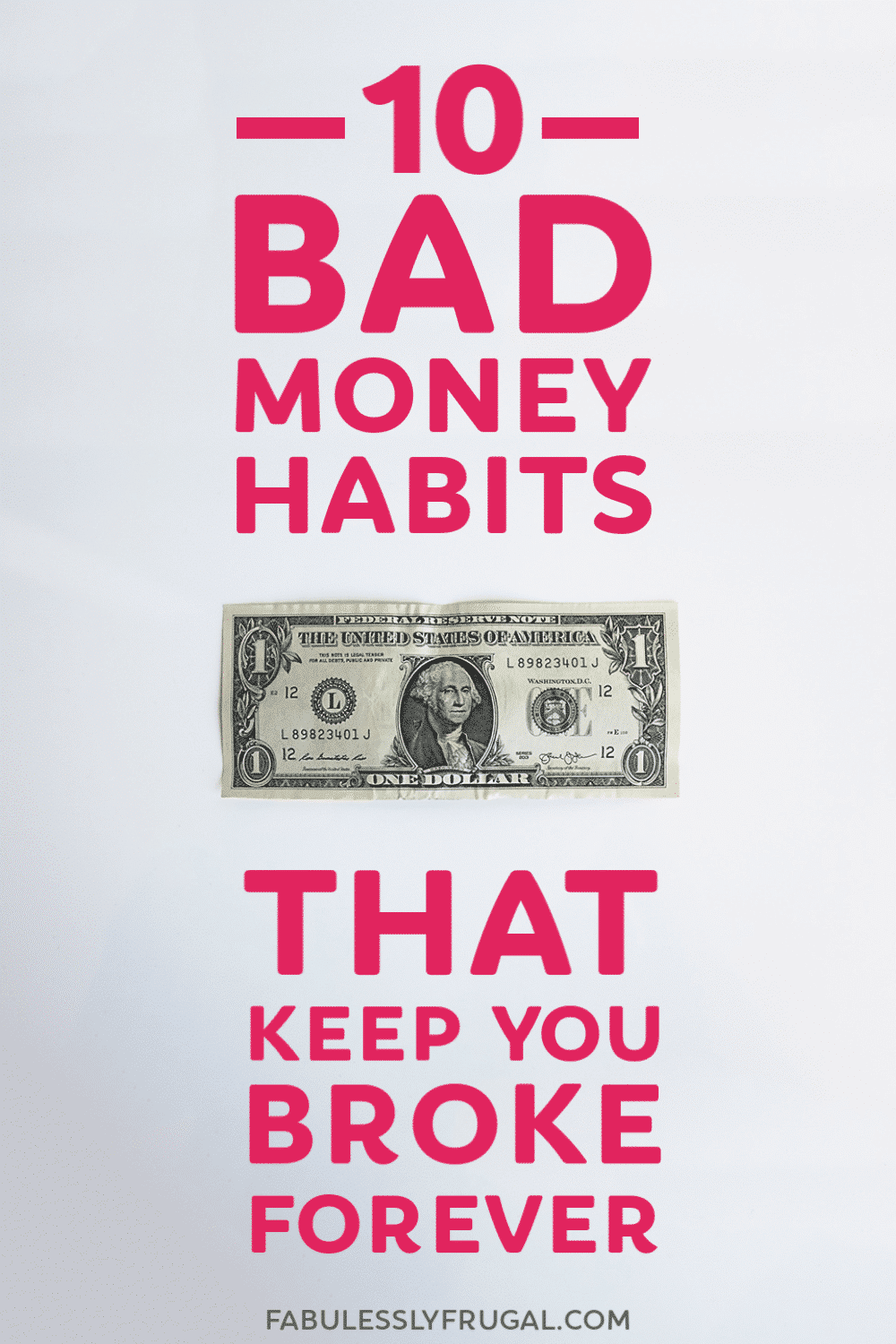
How to Break Your Bad Money Habits
They say it takes 21 days (or even longer) to replace a bad habit with a good one. The question is, are you going to start working on replacing your bad money habits TODAY or are you going to brush it off and do it another time?
If you want to see the most change, I recommend picking ONE habit and working on correcting that habit for a full month. If you try to correct multiple bad financial habits at once there’s a chance you’ll just get overwhelmed, give up, and go back to your old ways.
To really set it in stone, I want you to post a comment below telling me what habit you plan on fixing, and how you plan on going about it! Can’t wait to hear from you!!
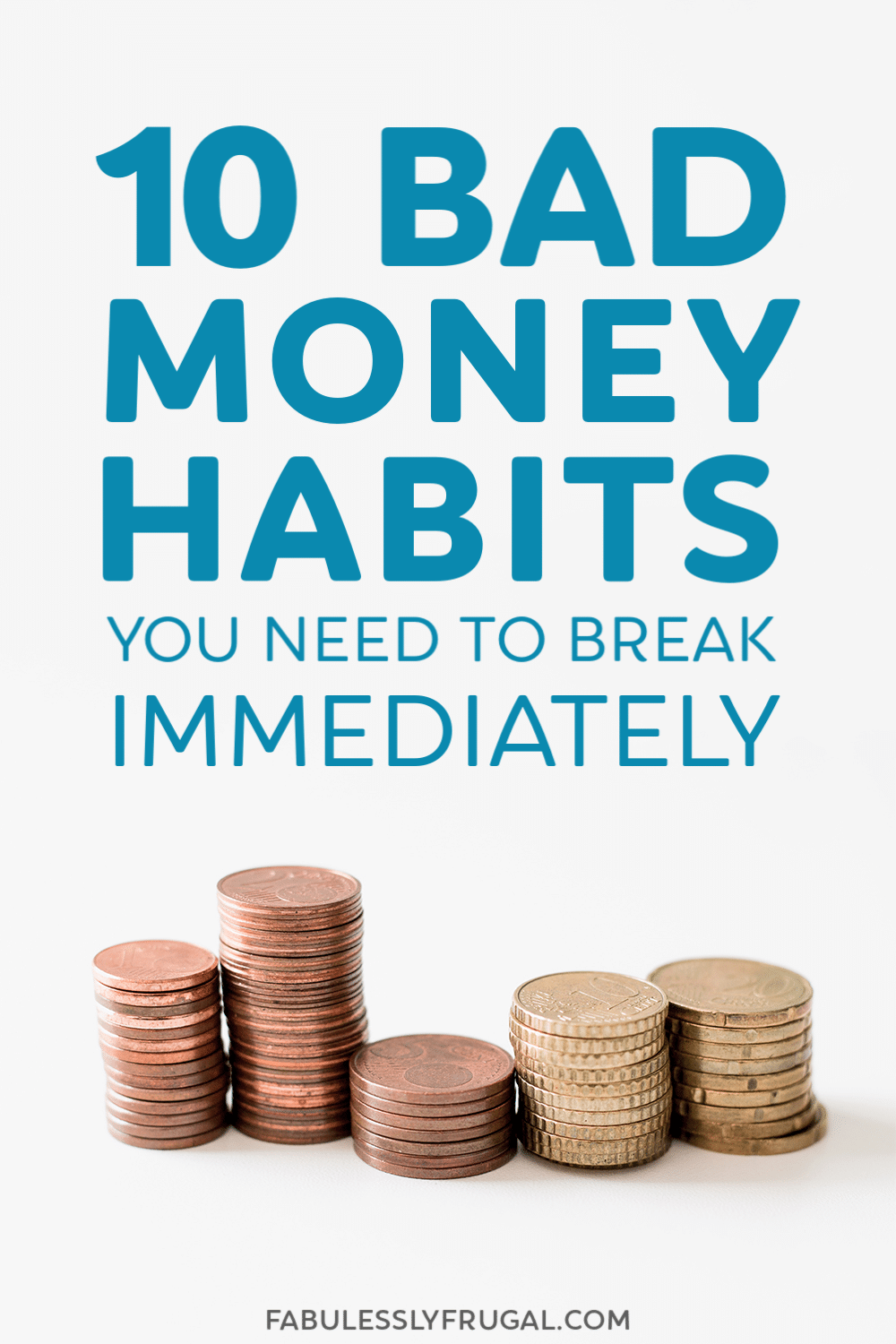
Trending Posts
Comments
Leave a Reply
Report a Problem
Please select the problem you are facing with this deal:
- Price Increased
- Price Decreased
- No longer available
- Expired
- Link doesn't work
- Suggestion
- Compliment
- Other
Add more details:
Thank you for your feedback. We really appreciate it.
Enter your email address if you would like
to receive a follow up.
Please Try Again
Thanks for providing the email address.
We will reach out to you as soon as possible.


























I am guilty on a lot of things on the list and I should really change it starting now.
I am guilty of impulse spending. Things that takes me a second to decide instead of analyzing it if i really need it or not.
I am guilty of saving large sums and then accessing my accounts…
I want to save less but then not access what I do save as my goals seem larger than reality. Thank you for your great tips. Amen. ♡♡♡
Sadly, this sounds like my biography. And the first step to tackling a problem is admitting it. So, I admit it. I do know that when I have a goal to save for a particular thing, I miraculously become super disciplined. Passing the CA Bar was my last goal-accomplished long ago. Time to set new goals, long and short term. Thanks for the reality check!!
Hi Nicole! Glad you found this helpful! Best to you and your goal setting! And congrats on passing the bar!
To curb my impulse buying I ask myself how many hours I have to work to pay for that item. Really helps me to prioritize.
I’m also preparing to retire in a year, so monitoring my spending more closely is an excellent tool to see exactly where my money is being spent. Using a whiteboard board to track my spending works for me!
That is a great tip Wendy! And congrats on your upcoming retirement!
I love these bad money habits. I think I have consumer mindset!
Best advice I could give is to pay extra principal each month on your mortgage . I did, and paid off my 30 year mortgage in 9 years.
Wow! That’s awesome! Thanks for sharing! 🙂
My bad habit is not keeping track of my spending. There are indeed months when my expenditures are more than my income. My intention: to get a good budgeting app and then (this is the hard) actually use it.
Thanks for all you do, Cathy.
Hi Annie,
This is a great tool to help with that! Cathy uses YNAB and has for a dozen years: https://fabulesslyfrugal.com/deals/you-need-a-budget-special-free-trial-for-fabulessly-frugal-readers/
Great post! I would add that one of the worst money habits to indulge in is hanging out with people who enable your bad spending habits. its not the fault of the other people, I mean like engaing in social events where you know you will ahve to spend money on things you want but don’t need.
Great tip, thanks Allen!